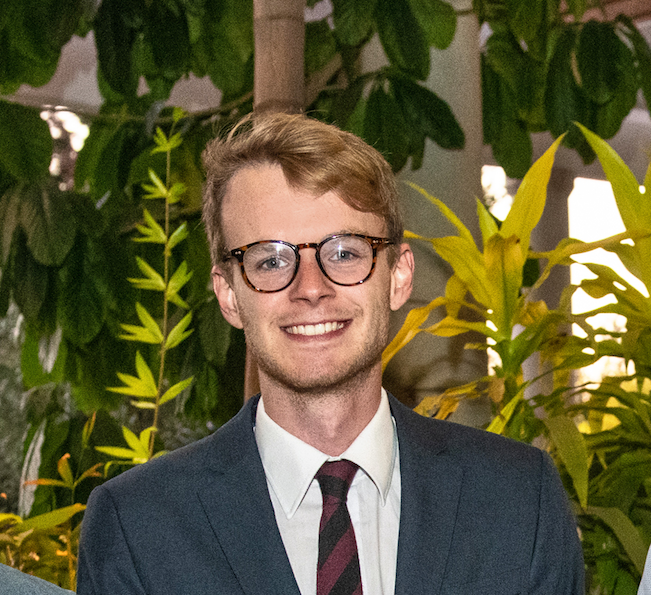On 18th January 2022 we welcomed Oliver Dawson, a final year PhD student at University of Bristol, to Landscape Surgery. Oliver’s thesis, titled “Poetic Cartographies and Ecosophic Thought” focuses on poetry as a process of encountering non-human forces which operate within this world, disrupting its obvious and performative imagination of worlds.
About
After finishing his Undergraduate degree in American Literature at the University of Sussex, Oliver began working in the arts and cultural sector and ran The Poetry School, an organisation based in London which provides poetry writing classes for adults. Through this organisation, Oliver was introduced to a range of poets and began to explore the contemporary poetry scene in the UK. The organisation saw people from all walks of life engage with poetry, many of whom went on to publish their work and return to teach at the The Poetry School.
Oliver went on to study an MSc in Human Geography: Society and Space at the University of Bristol where the university’s strong philosophical roots influenced his approach to poetry. Through his exposure to the works of thinkers such as Spinoza, Deleuze and Guattari, Oliver began to approach poetry as an encounter with impersonal forces and sensations.
Research and Influences
Whilst Oliver did not set out his career as a ‘geographer’ he states that he is on a journey to become a geographer. The combination of his studies, work and research have situated his research within cultural and historical geography, with a particular interest in geopoetics.
“Geography is not confined to providing historical form with a substance and variable places. It is not merely physical and human but mental, like the landscape” – Deleuze & Guattari 1994: 96
Guattari has had significant influence on Oliver’s research; his thesis aims to enact a certain ecosophic thought traditionally associated with Guattari, focusing on the combined importance of mental, social, and environmental domains in the production of subjectivity.

Ecosophic thought centres on how thinking these domains together actively composes a ‘wisdom of the home’. Oliver talked us through the understanding processes and productions of subjectivity as more than human, as a process which always involves non-human forces and therefore can be seen as a way of “thinking with the earth”.
“Something in the world forces us to think. This something is an object not of recognition but of a fundamental encounter.” – Deleuz, 1998
Oliver’s research aim therefore, is to think of poetry as an operational part of this world, as opposed to a commentary of the world. “Once poetry is a commentary it is a representation and confirmation of existing thoughts and ideas, the realities of what we already know”. Discussing the climate emergency, he argues that geopoetics should be less attached to commenting and responding to preconceived problems. Instead we should use geopoetics as a way of thinking with the earth when addressing realities such as the climate emergency. Oliver states that he has resisted engaging with ‘obvious’ poetry within his field such as eco-poetry, in doing so he establishes the challenges of geopoetics as not thinking from the self but instead thinking with the forces of the earth, deterritorialising the language used by thinking without a ground or foundation. By removing the ‘ground’, poetry and language have the potential to connect with the changes and movements of the earth.
His research reveals an interest in the relation of poetry and language, and understanding language as a system which covets order. In his attempt to address the asignifying side of language, Oliver draws on the disruption to order, by assigning events with poetry as ‘sites of disruption’ for performative ways of thinking. This has influenced his research methodology whereby he takes onboard the experience of meeting a poet, reading their work as well as the work which has influenced them, and then introducing his own philosophy. This method allows Oliver to be alert to the potential eruption of ideas by letting things emerge through the encounter, disrupting habitual patterns of thought and altering the production of subjectivity in novel, unpredictable ways.
Oliver sees geopoetics as a field he would like to explore further, potentially through the publication of a book. He is particularly interested in further exploring the meaning within the ‘geo’ and how his approach to poetry can act as a contribution to geopoetics as a whole.
We would like to thank Oliver for sharing with us his thought-provoking research and look forward to seeing his further exploration of geopoetics.
By Evie Gilbert
DELEUZE, G. & GUATTARI, F. 1994. What is philosophy?, New York, Columbia University Press.


